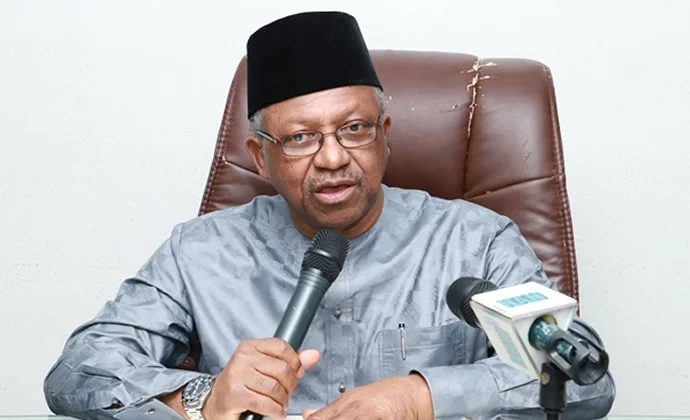Stephen Ukandu, Umuahia
Piqued by the controversial anti-imigration bill against medical doctors in Nigeria, the umbrella body of Nigerian medical doctors and dentists practising outside the country, the Diaspora Medical Associations, has petitioned the National Assembly over the ‘toxic’ bill.
The controversial bill seeks to compel medical and dental graduates to render five-year compulsory services within Nigeria before being granted full licence to practise.
But the Nigeria doctors in the diaspora consider the bill obnoxious and in bad taste.
Their letter entitled ‘Re: A position statement from diaspora medical associations – Bill seeking to restrict newly-qualified medical doctors and dentists from leaving Nigeria,’ was dated April 11, 2023.
A copy of the letter made available to Ikengaonline was addressed to the Speaker of the House of Representatives, Femi Gbajabiamila.
They copied the Senate President, Ahmad Lawan; the Chairman, Senate Committee on Health, Dr Ibrahim Oloriegbe; and the Chairman, House Committee on Health, Dr Tanko Sununu.
The doctors expressed their disappointment over the proposed bill, arguing it is against the fundamental rights of doctors.
According to them, the Medical and Dental Practitioners Act (Amendment) Bill sponsored by Ganiyi Johnson, which passed second reading at the House of Representatives last week, was counterproductive and would not achieve its intended goal of addressing brain drain in the country.
The letter was signed by the President, the Nigerian Doctors’ Forum, South Africa, Dr Emeka Ugwu; the President, Association of Nigerian Physicians in the Americas, Dr Chinyere Anyaogu; the President, Medical Association of Nigerians Across Great Britain, Dr Chris Agbo; the President, Canadian Association of Nigerian Physicians and Dentists, Dr Nnamdi Ndubuka; and the President, Nigerian Medical Association-Germany, Dr Al Amin Dahiru.
It read in part: “We recognise the problems posed by the exodus of Nigerian medical professionals from our health system, including, but not limited to decreased access to health care services, lack of quality of care, care delivery deserts the inability to adequately enact health care and public health policy due to lack of manpower and leadership resource.
“The major cause of brain drain includes a poor care delivery framework from a failure to invest in the health care to foster a conducive environment. The system does not promote professionalism, growth, work satisfaction, or a high-reliability culture. Other major drivers include very poor welfare packages, high levels of insecurity, limited opportunities for employment, sub-specialty training, sociopolitical and economic instability. The majority of these issues stem from outside the health care system and are outside of an individual’s control. Indeed, good governance and commitment to future investment in health care would improve conditions in the country that will allow security, good education for children, improved compensation, as described in the Abuja Declaration.”
The associations also said focusing on one aspect of a problem without taking a holistic approach to a sustainable solution would be ineffective.
“Young professionals leave the country in search of better opportunities. Many are frustrated by the consequences of governance failures that have progressively worsened over the past 30 years. The unfortunate reality is the health care system is in a state of serious neglect, training and career development opportunities are limited further impairing earning potential. Insecurity is rampant. Equity and justice are lacking for the average Nigerian.
“The Diaspora Medical Associations are invested in crafting effective solutions and are willing to participate in fostering solutions to that extent.”
They appealed to the Speaker to take urgent steps to shut down the proposed bill to avoid ripples in the medical sector.
The doctors promised to continue to provide support for the development of the sector.

